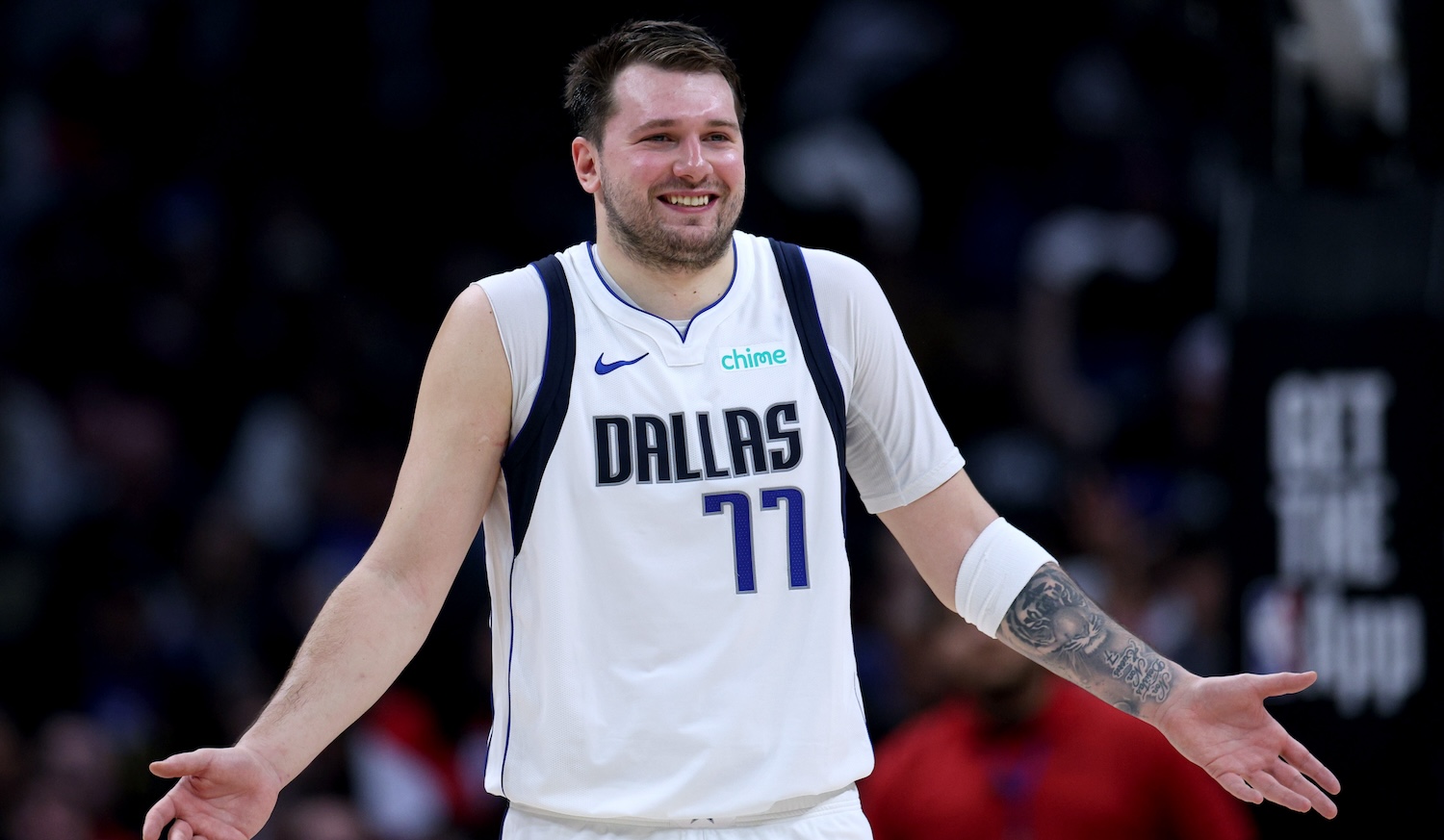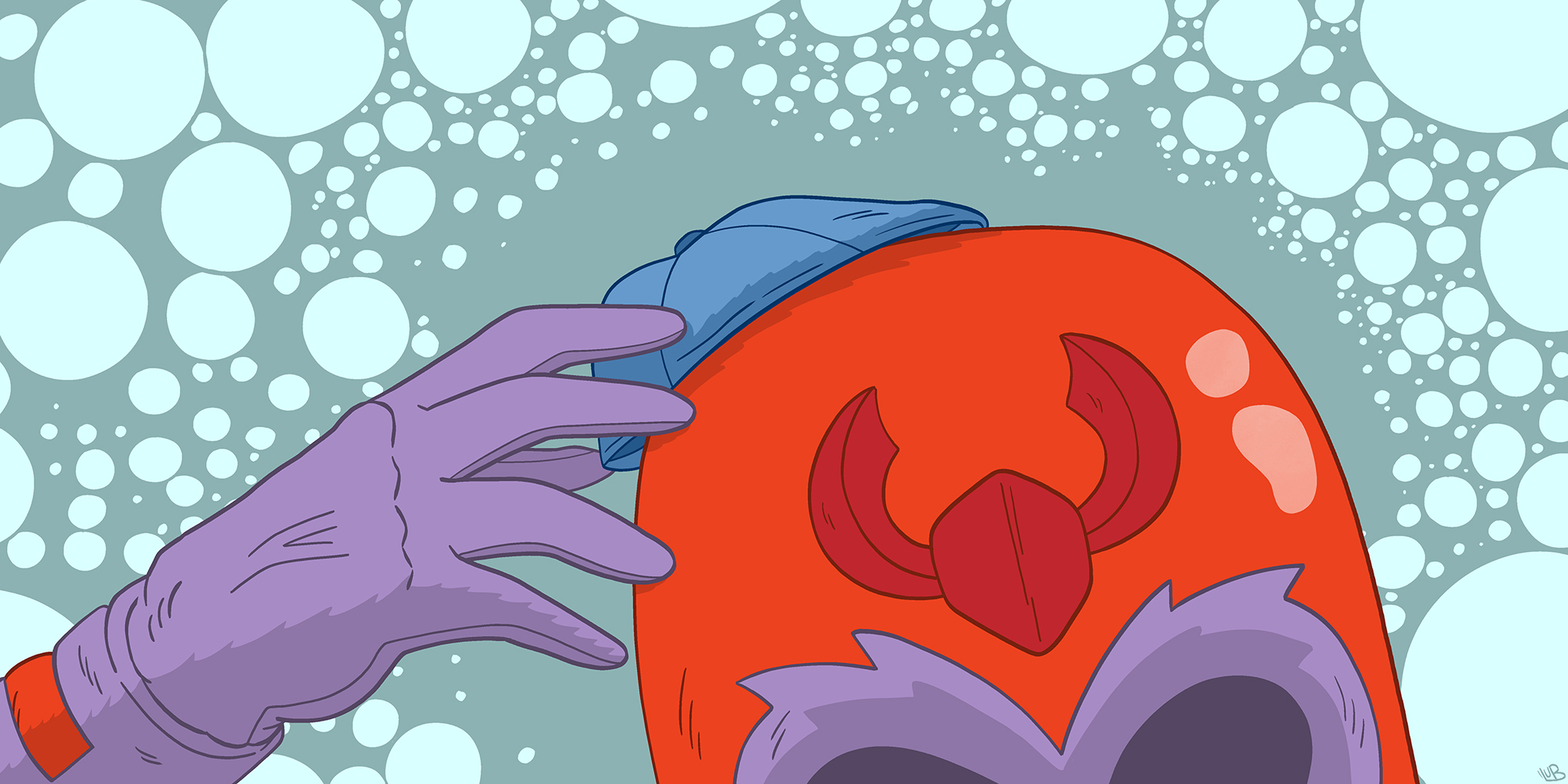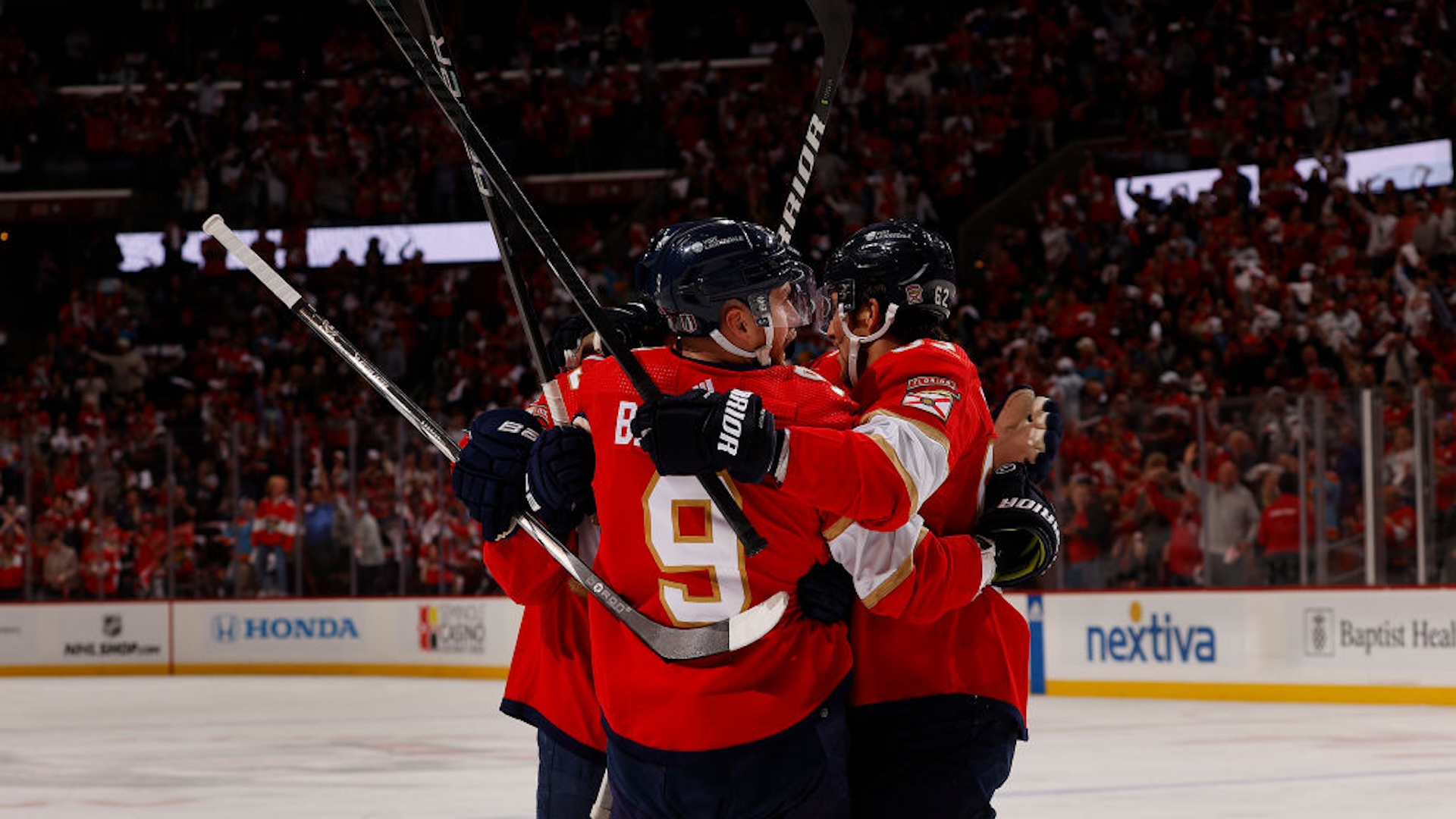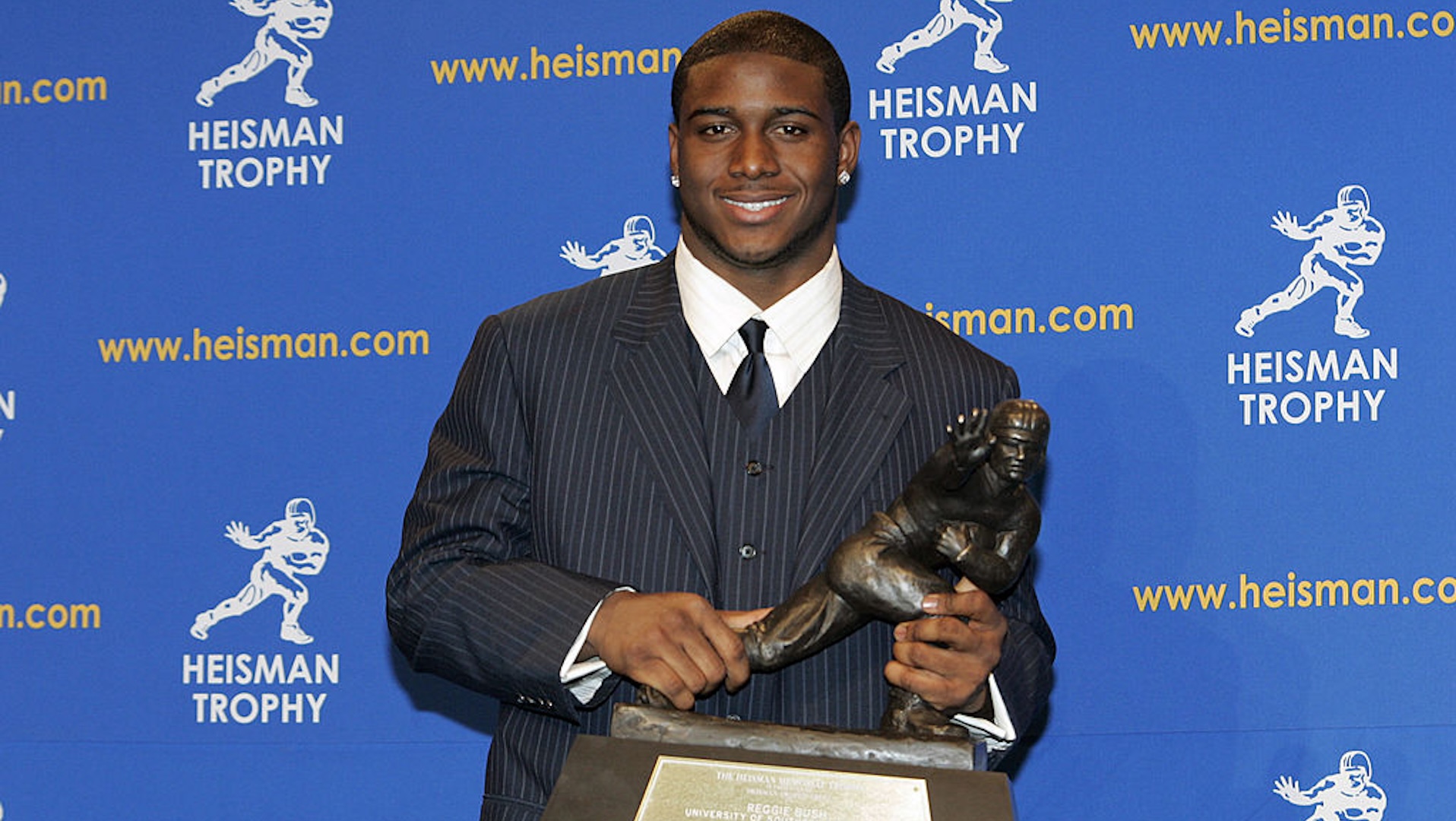Jerry Dipoto Has Touched The Ultimate
12:03 PM EDT on July 28, 2021
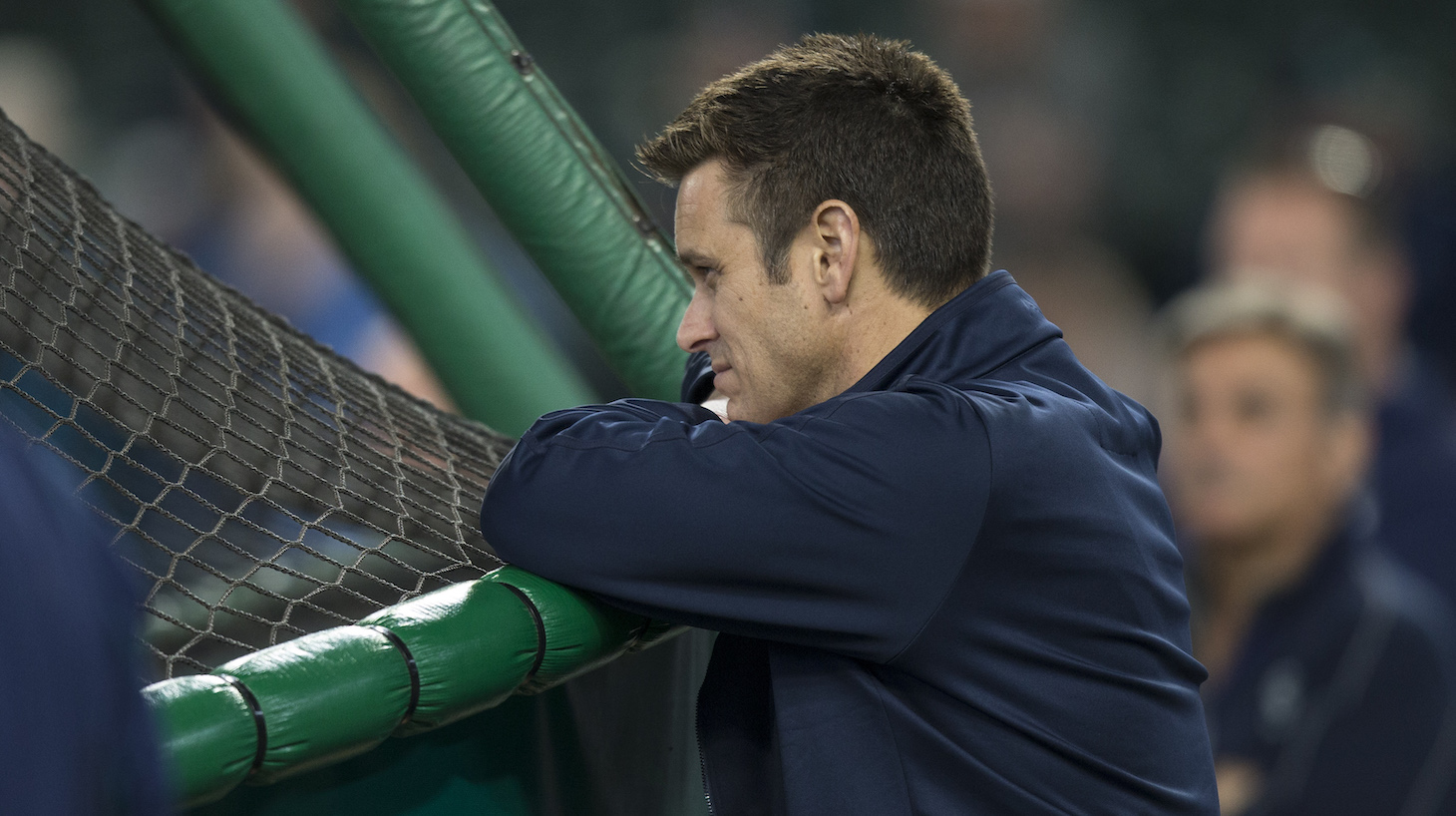
It has been spoken of for years, in cold conference rooms in the clouds, in the wood-lined chambers where embalmed-looking captains of finance drink old scotch and grouse and gossip, on the tee boxes of private golf courses with names that sound like different fancy versions of white paint. The ultimate deal, the one true mover's move, the truly pure trade. The deal that achieves perfect recursion for its dealsmith, a trade that goes beyond what is gained or lost and becomes so purely and loathsomely about itself and its author that it can only be understood as a work of art. A deal made, itself, of deals—incomprehensible, impenetrable, justly hated by all. If it is indeed out there to find, it would be Jerry Dipoto who would find it.
Dipoto was traded twice during his seven-year big league career, first to the Mets with two other pitchers for Jeromy Burnitz, and then straight up from the Mets to the Rockies for Armando Reynoso. He had some good seasons and some less-good ones and threw his last big-league pitch before he turned 33. He was just 43 when the Angels made him their GM in 2011, and he went on to sign Albert Pujols and C.J. Wilson and Josh Hamilton to contracts that would all become disastrous to varying degrees along different timeframes for different reasons. He was just doing what his owner wanted, which is what that job is. The Angels are a strange, shortsighted, deeply sour organization run by a grandiose grump, and Dipoto made the sort of moves that fit that club and that approach—big splashes, obvious and easily foreseeable failures, no consequences evident anywhere. He left that job in July of 2015, after pushing his luck in a power struggle with now-former manager Mike Scioscia.
The Mariners brought Dipoto on as GM in September of that year, and he hired his former assistant GM in Anaheim, the former big-league catcher Scott Servais, as the team's manager. The Mariners have not made the playoffs since 2001, but both are still entrenched in their roles. A brief generation of talent has risen through the system and come in through free agency and been churned and churned and churned out. Dipoto trades compulsively; in 2020, MLB Trade Rumors published a roundup of the dozens of deals he made over the first four-and-a-half years of his Seattle tenure, "a series of win-now moves, fringe roster tinkerings and, more recently, a 'reimagining' of his organization." That reimagining is, as all suitably vague gambits always are, ongoing. How good the deals he made were or were not is, in this context, beside the point. Dipoto is not even done imagining yet.
The problem, this year, is not really a problem. The Mariners have been surprisingly spunky and even more surprisingly pretty good. This was supposed to be another hazy notional season of Getting There, with vaunted outfield prospects Jarred Kelenic and Julio Rodriguez getting close enough to the majors that, after either some service time manipulation or the signing of a team-friendly deal that buys out their arbitration years, both would arrive next season in time to enter a new stage of Executive Imaginating. But while the current roster seems very much in-between, the Mariners also entered Tuesday's game against Houston at 55-46, just a game out of the second wild card spot and fresh off an 11-7 victory over the division-leading Astros in which they wiped out a 7-0 deficit. It was at this moment that Dipoto approached the ultimate by trading reliever Kendall Graveman and recently DFA'ed ex-closer Rafael Montero to those very same Astros for young infielder Abraham Toro and veteran reliever Joe Smith.
It is worth knowing that Graveman, after years as a reliably cromulent starter, has been among the most dominant relievers in baseball this year despite missing weeks to COVID quarantine protocols in May and June. He's a beloved figure in the Mariners' clubhouse and one of their most valuable pitchers, and he is also going to be a free agent at the end of the season. Anyway, here is Ryan Divish of the Seattle Times on how the Mariners responded when their GM traded the team's best reliever to the team in the opposing dugout—a divisional rival with which they had nearly brawled just one night earlier.
Sources said equipment was broken and smashed while one player “went absolutely mad.”
“Betrayed” was a word used often.
“Are you (expletive) kidding me?” said the same player. “It never changes. They don’t care about winning. How do you trade him and say you care about winning? And you trade him to Houston? It never changes.”
Seattle Times
Asked how the deal makes sense for the Mariners after the team somehow heaved itself into the wild card mix, Dipoto was both frank and obfuscatory. "It probably doesn’t as a stand-alone," Dipoto said. "But it’s part of a context that I believe is going to be an ongoing story over the next couple of days." What is frank about this, and about Dipoto's acknowledgment that the deal might well have torpedoed his upstart team's chemistry—"Hopefully the next moves will make a little bit more sense of it for the guys," he told Divish—is the acknowledgment that there is no easily legible reason for having made it at all. Later that same day, while the Mariners were losing 8-6 to the Astros, Dipoto swapped two minor leaguers to the Pirates for starter Tyler Anderson, who will also be a free agent at season's end.
It is something like the point that this is all very difficult to parse. The justification for these deals—how one set up the other, why one pending free agent was more valuable than another, whether the 24-year-old Toro will justify the moves through something other than some years of his cost-controlled presence—will become clear in the future, after the next deal or the one after that. This is the Dipoto way: It can never be assessed because it is never finished.
The context of Dipoto's grand reimagining of the Seattle Mariners is not the only context in which to understand this deal. The Mariners have not made the playoffs in two decades, during which time they have not so much wasted as recklessly muted the wild primes of superstars from Ichiro to Félix Hernández. That Seattle might have made it to the postseason for nine desultory innings this year matters very much, in that context, and also for what the experience of a fully committed pennant race might do for whichever young players might still be around when Dipoto's reimagining becomes something more concrete and committed. It is probably true that the Mariners are not nearly as good as their vibes, let alone their record. But, also, teams like that make the postseason all the time, and implausible and ridiculous and sometimes even wonderful things can happen to those teams. This is something like the point, at least in the classic understanding of what a baseball season is for.
It is absolutely possible that Dipoto has more big moves in store before MLB's trade deadline arrives on July 30. Given his long and busy track record, it would be more surprising if he didn't, frankly. Given the exceptionally broad and patient-unto-blasé mandate he's received from ownership, which seems content to let Dipoto continue his imagineering indefinitely as long as he doesn't cost them too much money and looks busy while doing it, it probably doesn't really matter very much what he does. In the context of the rest of this baseball season, even, this deal likely will not matter all that much.
That is what makes it so notable. Dipoto has long made these trades as if they didn't really matter, because they mostly haven't. Doing so again, at a moment of sweet and fleeting competitive significance, seems to have revealed just how little it all always meant. “He hasn’t come down here,” a player told Divish about Dipoto. “He sits up in his suite, playing fantasy baseball and rips apart our team without telling us anything.” The ultimate deal could never be anything but this—a move made not out of anything as humdrum or obvious as spite, or greed, or ambition, but for the sheer joy of the churn, the executive principle of fungibility exercised and enforced on the workplace below, the pure dumb thrill of doing something purely and solely because something can be done, and because the consequences that follow are someone else's problem.
If you liked this blog, please share it! Your referrals help Defector reach new readers, and those new readers always get a few free blogs before encountering our paywall.
Editor. Co-host of The Distraction.
Stay in touch
Sign up for our free newsletter
